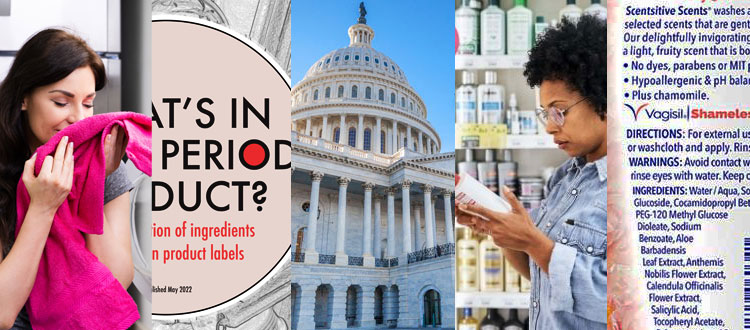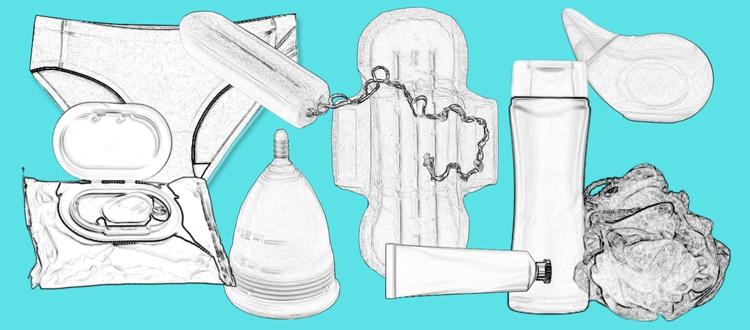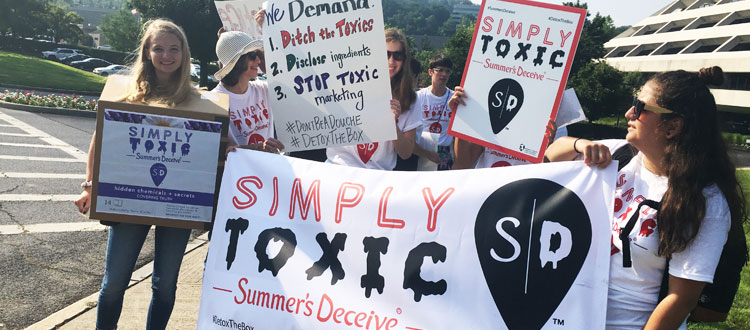What the Thinx Class Action Settlement Means for All of Us
Sierra Club Magazine By Jessian Choy “Thinx consumers united to launch a class action lawsuit in response to the news, and in January 2023, the... Read More
Recapping Your Most Popular Blog Posts on Toxic Chemicals and Ingredient Safety from 2022
From questions on the safety of ingredients like titanium dioxide and lilial, to product impacts on lactobacilli and healthy vaginal bacteria, nearly 300,000 people visited WVE's Voices Blog for tips, updates and insight into ways you can raise your voice for a toxic-free future!
‘The vagina is self-cleaning’ – so why do companies push hygiene products on Black women?
The Guardian By Paige Curtis “Racist advertising practices marketed vaginal cleansing products to Black women. Years later, they deal with the fallout … ‘Vaginal cleansers... Read More
New Bill Will Help Close Significant Gaps in Menstrual & Intimate Care Product Safety
Because of lack of government oversight, companies can even get away with not disclosing dangerous chemicals contained in these products. In fact, there is no federal law that requires manufacturers of menstrual care products to disclose any of the ingredients used in these products.
Why You Should be Concerned About Intimate Care Products that Inhibit Lactobacilli
Recent testing raises a lot of questions and concerns about the impacts intimate care products are having on our bodies. Specifically, our testing looked at how products might be affecting the delicate balance of healthy bacteria (namely lactobacilli) in our vaginas.
Testing Reaffirms the Need for Improved Safety Standards for Vaginal-Use Products
New laboratory research has demonstrated that some intimate care products currently on the market can significantly inhibit the growth of lactobacilli, which are essential bacteria for a healthy vagina. An upset or imbalance of lactobacilli are linked to increased risks of bacterial vaginosis (or BV). BV is incredibly common — it is estimated that at least 75% of women in the U.S. will experience episodes of vaginitis at some point during their life.
This new testing joins the growing evidence linking the use of intimate care products to vaginal infections, and also raises questions on if the products many people are using to “self-treat” BV symptoms, may in fact be worsening the problem.
Candid Conversations on Intimate Care Products
Article after article droned on about the importance of “freshness”, “smelling like a rose”, and an overwhelming sense of - “if I don’t wash with THIS cleanser, and wipe with THIS brand, and douche with THIS tool, my boyfriend will think I am gross and smelly and leave me!” ...
Because of You, Summer’s Eve Removed Ten Toxic Ingredients!
VICTORY! Summer's Eve has removed 10 toxic ingredients from their products. Unfortunately, underlying concerns with intimate care products continue to put our health at risk.
Itching, burning, pain, infections? You are not alone.
Not only is research on the causes of vaginitis scant, the treatments available are truly inadequate, often only successful for the short term – and way too many people have recurring symptoms month after month.
Hidden Nanosilver in Period Products Is A Concern, Says Health Organization
Environmental health organization, Women’s Voices for the Earth (WVE), has released a new fact sheet that raises concerns about the use of nanosilver in menstrual products like period underwear and pads, calling particular attention to the antibacterial agent’s impact on important bacteria necessary for maintaining vaginal and vulva health.
Not all period underwear or menstrual pads are made with nanosilver, but unfortunately companies who make these products are not required to disclose their ingredients.






